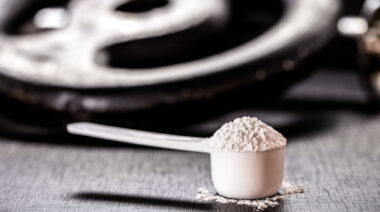When talking about results, creatine is one of the most basic and best supplements anyone can take. If you had to pick between something like a protein supplement and creatine, for most people I’d say go with the creatine. It’s that good and that proven for results.
But as with all things, although the results speak for themselves we need to make sure that supplementing with creatine is healthy as well. In general, I think supplementing with the basic nutrients like creatine is not going to be harmful, but it never hurts to research these topics at length. Quite the contrary, I think the best supplements should be scrutinized the most. In a study done by the Journal of the International Society of Sports Nutrition, that’s exactly what researchers did.
The researchers looked specifically at the impact of long-term creatine use on kidney function. Just for good measure, they threw in a high protein diet along with that creatine use. It might sound like they were trying to push the limits, but in reality this is what athletes do. So, we may as well study the effect it has on our health. Long term is relative here. The study lasted for twelve weeks of creatine supplementation, but I think that was a good enough amount of time to see the necessary results.
The researchers pointed out that most previous studies on kidney function with creatine usage were flawed. Many measured creatinine levels in the blood. No, I didn’t just spell creatine wrong there. Creatinine is a byproduct of creatine that is often used to measure kidney function. The terms look very similar, so bear with me for a moment. Creatinine, the byproduct, is filtered out of the blood by the kidneys and is very easily measured. When we have kidney problems and they aren’t filtering the blood like they should, creatinine is a convenient way to put a number to the problem. The worse the problem, the higher the creatinine.
For this study, however, the researchers knew that measuring creatinine levels would not be sufficient. Creatinine is a metabolite of creatine, and so blood levels of the former would be expected to rise with creatine supplemention. This isn’t because of kidney trouble, just the result of creatine supplementation that could cause a flaw in the study design.
Although in this particular study, creatinine levels were not ultimately elevated the researchers took no chances. They found an alternative method that did not depend on measuring creatinine to determine if creatine supplementation would be harmful to the kidneys. What they found in this study – and also noted that they had found in other studies – was no deleterious effects on the kidneys by creatine.
So, there you have it. Creatine use is not just effective, it’s also safe – at least insofar as your kidneys are concerned. Adding a high protein diet into the mix doesn’t make it any worse either. I suspect if we looked further into the other organs of the body and other potential health effects that we would find this same diet and supplementation would be just fine for your health on all fronts.
References:
1. Rebeca Lugaresi, et. al., “Does long-term creatine supplementation impair kidney function in resistance-trained individuals consuming a high-protein diet?,” Journal of the International Society of Sports Nutrition 2013, 10:26
Photo courtesy of Shutterstock.






